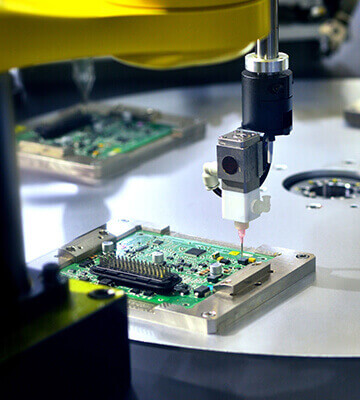Call Us Today
-
-
Email
ridtestlab@gmail.com
-
RID Test Lab PRIVATE LIMITED
Faridabad, Haryana, 121001

Salt Spray Testing
Service Overview
Salt spray testing, also known as salt fog testing, is a standardized laboratory test used to evaluate the corrosion resistance of materials and surface coatings. It is a widely adopted method in industries such as automotive, aerospace, marine, and manufacturing, where products are exposed to corrosive environments.
The test involves placing a sample in a sealed chamber where a fine mist of a salt solution, typically sodium chloride (NaCl), is continuously sprayed under controlled temperature and humidity conditions.
The process simulates the long-term effects of environmental exposure, such as coastal air or road salts, in a compressed timeframe. Standards like ASTM B117 and ISO 9227 guide the test procedure to ensure consistency and reliability.
Salt spray testing provides critical data to assess material durability, compare protective coatings, and predict a product's lifespan. However, it is often combined with other tests to account for real-world conditions like UV exposure, cyclic corrosion, and mechanical stress.
Why Choose RID Test Lab For Salt Spray Testing?
RID Test Lab offers precise salt spray testing to evaluate corrosion resistance, using advanced technology and expert analysis to ensure quality and durability in materials.
-
Corrosion Resistance
We test material durability against corrosion to ensure long-lasting performance.
-
Advanced Equipment
Our lab uses state-of-the-art technology for accurate salt spray testing results.
-
Expert Analysis
Our certified team provides thorough analysis and interpretation of testing outcomes.
-
Reliable Results
RID Test Lab guarantees consistent, dependable results for all salt spray tests.

How We Can Help
Rid Test Lab provides precise material testing, quality assurance, tailored solutions, advanced technology, and timely support for diverse industries.
- Automation for improved testing efficiency.
- Specialized tests for innovative projects.
- Flexible service options to fit your schedule.
- Ensuring compliance with industry standards.
- Fast turnaround time for testing results.
Know More About It.
Salt Spray Testing
Salt spray testing is a widely used accelerated corrosion test designed to evaluate the resistance of coatings, materials, or finishes when exposed to a salt-laden environment. This simulation helps manufacturers predict how their products will perform in harsh, corrosive environments, such as coastal areas or industrial zones. The method is efficient for comparing different materials or coatings and validating product durability before market release.
Neutral Salt Spray (NSS) Test
Description: The most common type of salt spray test, using a 5% sodium chloride (NaCl) solution with a neutral pH of 6.5-7.2.
Purpose: To evaluate the general corrosion resistance of materials, coatings, or surface treatments.
Standards: ASTM B117, ISO 9227.
Acetic Acid Salt Spray (AASS) Test
Description: A variation where acetic acid is added to the salt solution, reducing the pH to an acidic range (3.1-3.3).
Purpose: TCommonly used for testing decorative coatings like electroplated or anodized layers.
Standards: ISO 9227.
